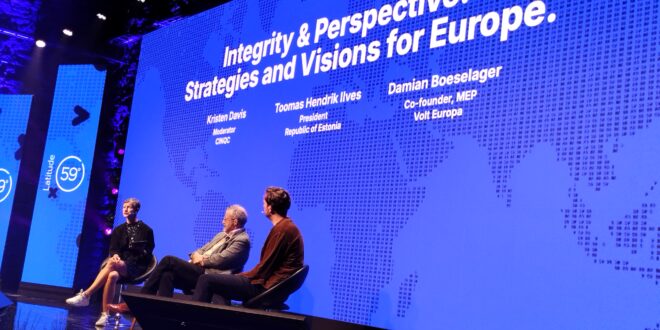Leading a country or a company in Europe presents similar challenges: protecting citizens and clients, securing markets and borders, attracting investment, managing partnerships and foreign policy, and attracting and retaining talent.
The book called “Strategies and Visions for Europe” explores these issues through the lens of startups and various sectors including Defense/CyberSec, Healthcare/MedTech, Public/GovTech, Environment & Energy/CleanTech, Economics, Finance/Fintech. The book offers recommendations to foster a more competitive and unified Europe, enabling its leaders—whether of a country, a movement, or a company—to effectively respond to today’s threats.
– “It’s always a challenge for smaller entities, even small nations. We need to leverage our power of delivery,” remarked Toomas Hendrik Ilves, former President of Estonia at the Latitude59 He recalled an instance during his last year in office when a young Estonian entrepreneur with a brilliant invention struggled to find investors in Europe and subsequently moved to the U.S. “Later, I heard positive news: he found investors and sold his company for a hundred million dollars just a year later.
Ilves emphasizes the crucial importance of investing in the European ecosystem. He considers it a cornerstone for Europe’s economic competitiveness against the U.S. and, particularly, China.
– “One of those elements is AI,” Ilves continued. “If we’re not prepared to invest heavily in R&D, we’re losing the game. The framework has been well-established here in Estonia, which is a leading nation in the digital era.”
Toomas Hendrik Ilves served as President of Estonia from 2006-2016. He is widely recognized for transforming Estonia into one of the most digitally advanced nations through innovative policies that prioritized future investments.
According to MEP Damian Boeselager, Europe needs to digitalize the cross-border hiring process to further streamline its job market. Other key areas of focus include health and mental health. Beyond digitalization, robust infrastructure is essential for big data.
– While security breaches have occurred in data infrastructure, his opinion is that digital data remains, and will continue to be, more secure than traditional methods or any paper document, underlines Damian Boeselager, who is a Member of the European Parliament. He focuses on creating a real European parliamentary democracy.
 Nordic Startup News Early Stage Startup News From The Nordics
Nordic Startup News Early Stage Startup News From The Nordics


